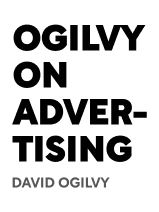

This article is an excerpt from the Shortform book guide to "Ogilvy On Advertising" by David Ogilvy. Shortform has the world's best summaries and analyses of books you should be reading.
Like this article? Sign up for a free trial here .
Is there a marketing research problem? What issues might you run into when conducting marketing research, and how do you avoid them?
David Ogilvy points out the nine pitfalls of research. These pitfalls can lead to a marketing research problem, and if you’re directing or conducting research, you should take steps to avoid running into these common issues.
Read more about the nine pitfalls of advertising and how they can lead to a marketing research problem.
Nine Pitfalls That Can Lead to a Marketing Research Problem
There are nine pitfalls to avoid when it comes to doing or directing research:
- Taking too long. To be useful, research must produce data within days or weeks, not months. Don’t be so scared of making a mistake that your work drags on. For example, when Ogilvy ran the Audience Research Institute, statisticians wanted two months to complete a report. Ogilvy made them do it in two days because he needed the information fast.
- Disputing methodology. This is a waste of time. For example, 21 agencies took two years to decide on the principles for copy-testing.
- Getting distracted. Researchers tend to be intellectual and more interested in other subjects besides advertising. Keep them focused on advertising.
- Bad filing. If people can’t find research that’s been conducted (or even remember it was conducted, if the players have left the company), then people waste time redoing the same research.
- Focusing on fads. Fads can be useful, but they never last, so focus on information that will be useful long term.
- Making reports too long and complicated. The average person can’t understand many researchers’ graphs.
- Being perfectionists. Researchers tend to refuse projects they can’t do perfectly.
- Not taking initiative. Most researchers need a constant stream of orders and directions to get anything done.
- Use of jargon. Avoid words such as “sub-optimal” or “attitudinal paradigms.” Not only will people not know what you mean, but they’ll also be annoyed at the pretentiousness.
Now that you know the pitfalls with research, you can consider these issues and factors so you don’t run into a marketing research problem. Your research should be as foolproof as possible so you have the best data.

———End of Preview———
Like what you just read? Read the rest of the world's best book summary and analysis of David Ogilvy's "Ogilvy On Advertising" at Shortform .
Here's what you'll find in our full Ogilvy On Advertising summary :
- What the "father of advertising" has learned from his decades' of experience
- How to craft easy-to-understand ads that work
- The 6 pioneers of the advertising industry






